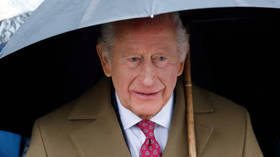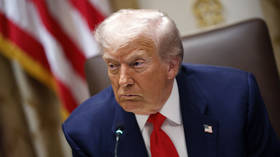
In the second circular of the alleged presidential election, the votes of the electorates of smaller candidates played a key role. The exit poll conducted by Ipsos for TVN24, TVP and Polsat News shows that most of the voters of Sławomir Mentzen and Grzegorz Braun advocated for Karol Nawrock, while the electorates of Szymon Holown, Magdalena Biejat and Adrian Zandberg overwhelmingly supported Rafał Trzaskowski.
Who won the vote of Mentzen and Braun?
According to the study:
- 88.1% Mentzen voters voted for Nawrocki, and only 11.9% To Trzaskowski.
- Among Braun’s supporters 92.5% chose Nawrocki, while 7.5% supported Trzaskovsky.
This shows that the electorates of far-right candidates mostly united around Nawrocki, even though they had previously competed with him in the first round.
Voices of left and centre voters for Trzaskovsky
In turn voters Holownia, Biejat and Zandberg in the vast majority supported Trzaskowski:
- 86.2% Voters for Holovnia chose Trzaskowski, and 13.8% Navrocki.
- 90.2% voters of Biejat voted for Trzaskowski, only 9.8% Nawrocki.
- Among Zandberg's supporters 83.8% in favour of Trzaskowski, and 16.2% To Nawrock.
Also interesting is the distribution of votes among voters Joanna Senyszyn – 81.1% of them supported Trzaskowski, and 18.9% Navrocki.
Unexpected results among the voters of Stanowski
One of the most amazing results was the distribution of votes among the electorate of Krzysztof Stanowski. Turns out 51.2% his voters voted for Nawrocki, and 48.8% on Trzaskowski, which shows the division among the centre voters.
Loyalty of voters in the second round
The exit poll survey besides revealed how voters of both candidates from the first turn:
- 99% voters in the first circular voted for him again and only 1% chose Nawrocki.
- Among Nawrocki supporters 99.3% remained with his candidate, but only 0.7% cast the vote for Trzaskowski.
Summary:
If exit poll is consistent with the final results of PKW, the key question will be: What will Donald Tusk's government do? The presidential elections in Poland must be approved by Supreme Court, specifically by Chamber of Extraordinary Control and Public Affairs – which is now is not recognised by the authorities as full legal.
This can lead to serious constitutional conflict. If the ruling organization questions the validity of the elections or considers the decision of the SN to be invalid, it may happen political and legal crisis. In specified a situation, the position will be crucial Constitutional Court and the consequence of global institutions specified as the EU.
Will the government accept the electoral verdict or will it scope dispute over the legitimacy of the fresh President? The final answer will depend on political will of both parties and to avoid escalation of tensions. 1 thing is certain – The final game can not only be played in urns, but besides in courts and on the streets.
Summary: What will Poland face erstwhile the election results are announced?
Today's second circular of alleged presidential elections can lead Poland into a serious constitutional crisis. Pursuant to Article 129(1) of the Constitution of Poland, the validity of the election of the president of the Republic states the ultimate Court. Currently, this work is fulfilled by the Chamber of Extraordinary Control and Public Affairs of the ultimate Court. However, in the light of the case law of the Court of Justice of the European Union (TEU) and the European Court of Human Rights (ECHR), serious doubts arise as to the legality and independency of this House.
Doubts as to the legality of the Extraordinary Control Chamber
In its judgement of 19 November 2019 in Joined Cases C-585/18, C-624/18 and C-625/18, The CJEU pointed out that the way in which judges were appointed to the recently created ultimate Court chambers, including the Disciplinary Chamber, could violate the rule of the independency of courts. The Court stressed that the engagement of the National Judicial Council (NRA) in this process raises doubts as to its independency from the legislative and executive authority. Although the ruling afraid the Disciplinary Chamber, his thesis besides applied to the Extraordinary Control Chamber, whose judges were appointed in a akin way.
A akin position was taken by the ECHR in the judgement of 22 July 2021 in Reczkowicz v Poland (complaint No 43447/19), stating that the Disciplinary Board is not a court established by law within the meaning of Article 6(1) of the European Convention on Human Rights. The Court pointed to serious irregularities in the appointment of judges to this House, which violates the right to a fair trial. In the context of the ETPC nomination process, it confirmed that the KRS does not supply adequate guarantees of independency from the legislative and executive authority. erstwhile assessing irregularities in the establishment and casting of the Disciplinary Board, the ECHR decided that they would undermine the legitimacy of the home in a way that deprives it of the attributes of the court. The ECHR conclusions may besides be translated into the Chamber of Extraordinary Control and Public Affairs of the SN and another judges appointed in the 2018 procedure.
Constitutional consequences of the failure to find the validity of elections
Pursuant to Article 130 of the Constitution of the Republic of Poland, the president shall take office after oath to the National Assembly. However, this oath may be made only after the ultimate Court has established the validity of the choice. If this decision is given by a body whose legality is contested, this may lead to a situation where the fresh President's appointment is considered illegal.
Such a situation could lead to serious constitutional chaos and destabilisation of state bodies. In utmost cases, it can be utilized by policy makers to introduce extraordinary constitutional measures specified as emergency or even martial law (based on Articles 229 to 234 of the Constitution of the Republic of Poland), which poses a serious hazard to the legal order and democratic strategy of the state.
The request to improvement and reconstruct the regulation of law
In order to avoid specified a scenario, it is essential to take measures to reconstruct the independency of the judiciary in Poland. In particular, it should be ensured that the authorities liable for validating the elections are independent and legally established. Only in this way can it be guaranteed that the presidential elections will be held in a legal and constitutional manner, and their result will be widely accepted.
The threat material was created on the basis of a legal analysis prepared by Lega Artis, which reserves all copyrights for this publication.
More here:
Where did Mentzen and Braun vote? amazing exit poll results


















